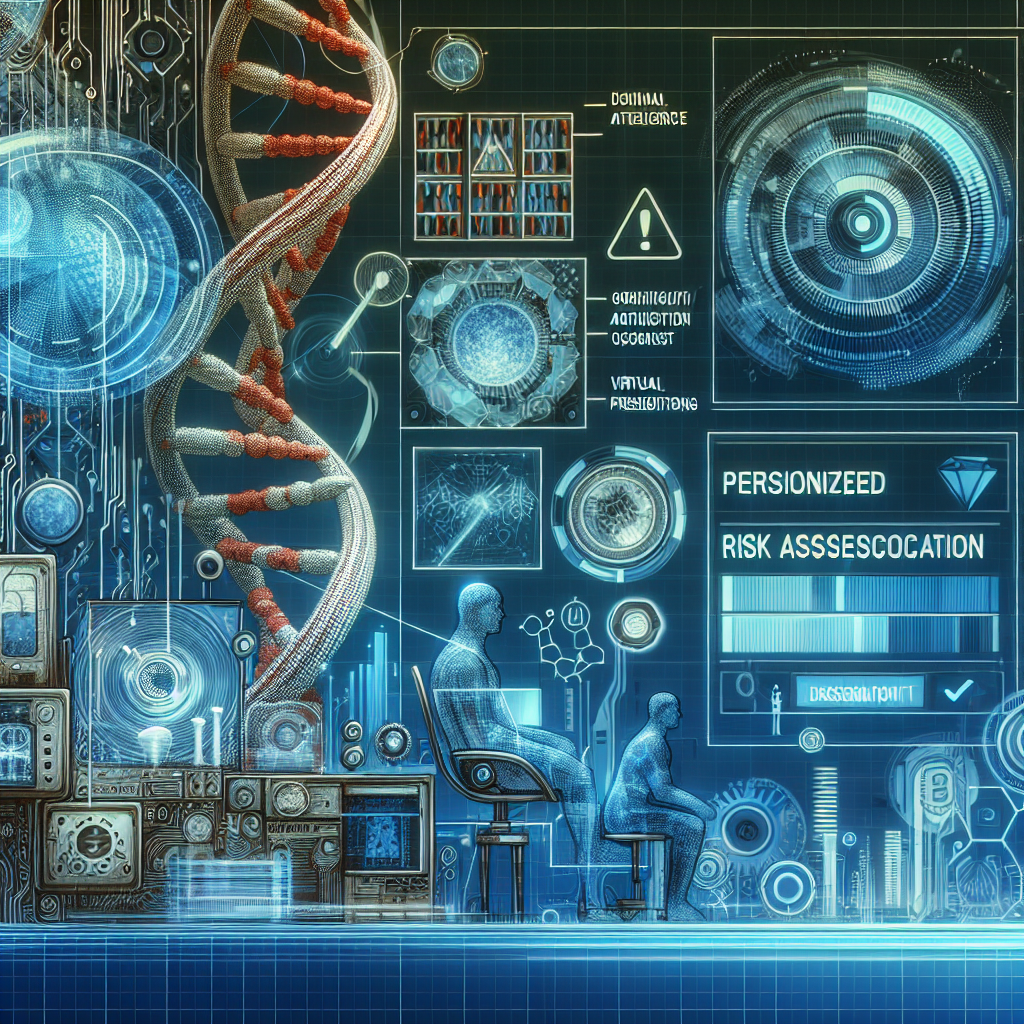In recent years, the field of genetics has seen significant advancements, particularly in the area of genetic testing. Genetic testing involves analyzing a person’s DNA to identify potential genetic variations that may increase their risk of developing certain diseases or conditions. This information can be invaluable in helping individuals make informed decisions about their health and wellness.
One of the most exciting developments in genetic testing is the use of artificial intelligence (AI) to personalize risk assessments. AI algorithms can analyze vast amounts of genetic data to identify patterns and associations that may not be immediately apparent to human researchers. This can lead to more accurate and personalized risk assessments for individuals, allowing for more targeted preventive measures and treatment options.
AI Deployment in Genetic Testing
AI deployment in genetic testing involves using machine learning algorithms to analyze genetic data and identify patterns or associations that may be predictive of certain health outcomes. These algorithms can be trained on large datasets of genetic information to learn which genetic variations are associated with increased risk for specific diseases or conditions.
One of the key advantages of AI deployment in genetic testing is the ability to analyze complex genetic interactions that may be missed by traditional statistical methods. For example, AI algorithms can identify gene-gene interactions or gene-environment interactions that may contribute to an individual’s risk for developing a particular disease.
By using AI to personalize risk assessments, genetic testing can provide individuals with more accurate and actionable information about their health. For example, AI algorithms may be able to identify individuals who are at high risk for developing certain diseases at an earlier age, allowing for more targeted screening and preventive measures.
AI deployment in genetic testing also has the potential to improve the efficiency and cost-effectiveness of genetic testing. By automating the analysis of genetic data, AI algorithms can process large volumes of data more quickly and accurately than human researchers. This can lead to faster turnaround times for genetic test results and lower costs for individuals seeking genetic testing.
Personalizing Risk Assessments
One of the key benefits of AI deployment in genetic testing is the ability to personalize risk assessments for individuals. By analyzing an individual’s genetic data in conjunction with other relevant factors such as family history, lifestyle, and environmental exposures, AI algorithms can provide more accurate and personalized risk assessments for specific diseases or conditions.
For example, AI algorithms may be able to identify individuals who are at high risk for developing heart disease based on a combination of genetic variations, lifestyle factors such as diet and exercise, and family history of heart disease. This information can then be used to tailor preventive measures such as lifestyle modifications or medication interventions to help reduce the individual’s risk.
AI deployment in genetic testing can also help identify individuals who may benefit from more frequent screening or surveillance for certain diseases. For example, AI algorithms may be able to identify individuals who are at high risk for developing certain types of cancer based on their genetic profile. These individuals may be recommended for more frequent screening or surveillance to detect cancer at an early stage when treatment is most effective.
Overall, personalized risk assessments made possible by AI deployment in genetic testing can help individuals make more informed decisions about their health and wellness. By identifying individuals who are at high risk for certain diseases or conditions, genetic testing can help individuals take proactive steps to reduce their risk and improve their overall health outcomes.
FAQs
Q: How accurate are AI algorithms in predicting disease risk based on genetic data?
A: AI algorithms have been shown to be highly accurate in predicting disease risk based on genetic data. By analyzing large datasets of genetic information, AI algorithms can identify patterns and associations that may not be immediately apparent to human researchers. This can lead to more accurate and personalized risk assessments for individuals, allowing for more targeted preventive measures and treatment options.
Q: How can individuals access genetic testing with AI deployment?
A: Individuals interested in genetic testing with AI deployment can speak with their healthcare provider or a genetic counselor to learn more about available testing options. Many companies now offer direct-to-consumer genetic testing kits that utilize AI algorithms to analyze genetic data and provide personalized risk assessments. It is important to choose a reputable company with a track record of accuracy and data privacy protections.
Q: What are the potential risks of genetic testing with AI deployment?
A: While genetic testing with AI deployment can provide valuable information about an individual’s health and wellness, there are potential risks to consider. These may include the risk of false positive or false negative results, concerns about data privacy and security, and the potential for genetic discrimination by insurers or employers. It is important for individuals to carefully weigh the potential benefits and risks of genetic testing with AI deployment before proceeding.
In conclusion, AI deployment in genetic testing is revolutionizing the field of personalized medicine by providing individuals with more accurate and personalized risk assessments for specific diseases or conditions. By analyzing complex genetic interactions that may be missed by traditional methods, AI algorithms can help individuals make more informed decisions about their health and wellness. As AI technology continues to advance, genetic testing with AI deployment will likely play an increasingly important role in preventive medicine and personalized healthcare.

